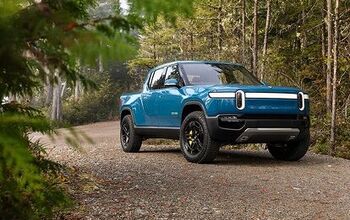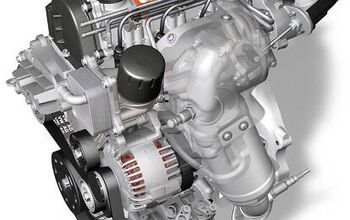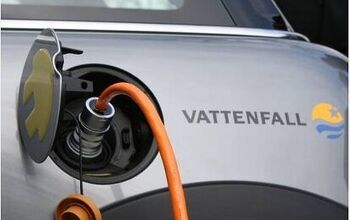The EU's Green Dilemma
In a study for the Danish Petroleum Industry Association, consulting firm Ea Energy Analyses concludes that electric vehicles (EVs) will not significantly improve the EU’s carbon footprint over the next 15 years. According to Globe-net.com‘s write-up of the report:
The study demonstrates that while electric cars have the lowest ‘tail-pipe’ emissions, they cannot attain the same travel ranges or top speeds as conventional cars. An electric car that could cover a similar distance with one charge would in fact produce more CO2 emissions than diesel vehicles, as it is heavier and requires more energy
The EU is currently considering tax policy for electric vehicles, and this report is sure to throw some flammable fossil fuel on the debate. Though the report is somewhat suspect in the sense that it was commissioned by an influence group that seeks to perpetuate fossil fuel use, there’s no denying that Europe’s reliance on coal and gas-power for electricity generation negatively impacts the carbon footprint of EVs.
Meanwhile, the recent scandal surrounding climate change science (known as “Climate-Gate”) has The WSJ [sub]’s Neil Winston wondering if carbon-based emissions standards aren’t unnecessarily harming Europe’s automakers. With a 2020 benchmark of 60 MPG planned,Winston concludes (quoting Garel Rhys, Emeritus Professor at Cardiff University’s Business School):
If what is taken as gospel in terms of global warming turns out not to be the case, then the automotive industry has been encouraged and forced to spend huge amounts of money effectively for nothing. At the very least, the EU should re-jig the timetable so that 2020 standards are put back to 2025, and that would give a chance for the truth or otherwise about the climate debate to come to the fore. The 2020 standards are impossible to meet with petrol and diesel engines alone, and we are assuming a breakthrough in battery technologies
With short-term incentives favoring diesel but with long-term emissions standards requiring major investments in new technologies, the EU is facing quite the dilemma. And with the debate over climate change science re-energized, tough carbon-based emissions standards will be an obvious point of attack for the industry. What remains unchanged are the energy-independence-based motivations for efficiency standards, which could take on greater significance in the debate over standards ramp-ups.
Only one thing is certain in this confused political scene: government bailouts of failing car companies make it harder to justify further government assistance in meeting efficiency standards. Though Winston wails about the “crippling” burden high standards place on automakers, governments would have more resources to help the industry develop more ways to meet the standards if they weren’t so focused on protecting their national auto sectors in the face of declining sales. Meanwhile, the Danish study makes it clear that auto futuretech will make clean electrical generation as important to carbon and emissions policy as anything else. If the EU wants its standards to be attainable, its leaders have their work cut out for them.
More by Edward Niedermeyer
Latest Car Reviews
Read moreLatest Product Reviews
Read moreRecent Comments
- ToolGuy From the relevant Haynes Repair Manual:"Caution: The 4.6L models require a special tool to extract the water pump from the coolant crossover housing. This special tool is expensive and the removal procedure is difficult. Have the water pump replaced by a dealer service department or other qualified automotive repair facility if the tool is not available."One version of the tool is Lisle 14440; I paid $10.82 (less 5% discount, plus shipping).You can see why I never attempt my own maintenance or repairs. 😉
- Dave M. IMO this was the last of the solidly built MBs. Yes, they had the environmentally friendly disintegrating wiring harness, but besides that the mechanicals are pretty solid. I just bought my "forever" car (last new daily driver that'll ease me into retirement), but a 2015-16 E Class sedan is on my bucket list for future purchase. Beautiful design....
- Rochester After years of self-driving being in the news, I still don't understand the psychology behind it. Not only don't I want this, but I find the idea absurd.
- Douglas This timeframe of Mercedes has the self-disintegrating engine wiring harness. Not just the W124, but all of them from the early 90's. Only way to properly fix it is to replace it, which I understand to be difficult to find a new one/do it/pay for. Maybe others have actual experience with doing so and can give better hope. On top of that, it's a NH car with "a little bit of rust", which means to about anyone else in the USA it is probably the rustiest W124 they have ever seen. This is probably a $3000 car on a good day.
- Formula m How many Hyundai and Kia’s do not have the original engine block it left the factory with 10yrs prior?


































Comments
Join the conversation
It won't happen.
"Europe’s reliance on coal and gas-power for electricity generation negatively impacts the carbon footprint of EVs." Sure it negatively impacts it but the bottom line is the EV still has a smaller carbon footprint. What about all the pollution refineries, oil tankers, transport trucks and gas stations add. What if you eliminated all the oil changes done every day in the US. Don't need to change oil on an EV. What's the effect there on pollution.